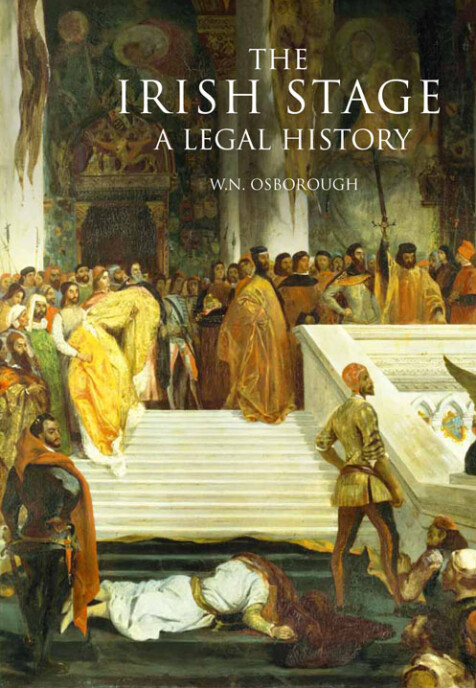The Irish stage
A legal history
W.N. Osborough
Drama, opera, ballet, circuses, concerts and puppet-shows: down the years, all these species of live entertainment faced innumerable difficulties in Ireland. The challenges that are the focus in this unusual study are those that touched on matters of law.
The State has always been circumspect about the power of theatres and the stage. From the Irish Mastership of the Revels, first conferred in 1638 by Thomas Wentworth, and the regime of theatre patents inaugurated in 1786, to censorship both earlier and later, Professor Osborough reviews the law as it related to theatres in Ireland over four centuries.
Assorted venues encountered episodes of censorship and of riot. Safety of buildings, performers’ contracts, dramatic authors’ performing rights, liquor licensing all merit attention too, as, indeed, necessarily must the issue of the lawfulness of any ‘theatrical’ activity itself.
This engaging study draws on the legislation and law reports of Ireland, Northern Ireland, England, Britain and the United Kingdom. Spectres of the Smock Alley Theatre, the Theatre Royal and the Queens in Dublin, the Vaults in Belfast and Limerick’s Assembly House, among other well remembered names, make their appearance, as do the going concerns that continue to entertain in cities and towns across Ireland.
W.N. Osborough is emeritus professor of jurisprudence and legal history, University College Dublin. He is the author of numerous books on Irish legal history including An island's law: a bibliographical guide to Ireland's legal past (Dublin, 2013) and The Law School of University College Dublin: a history (Dublin, 2014).

